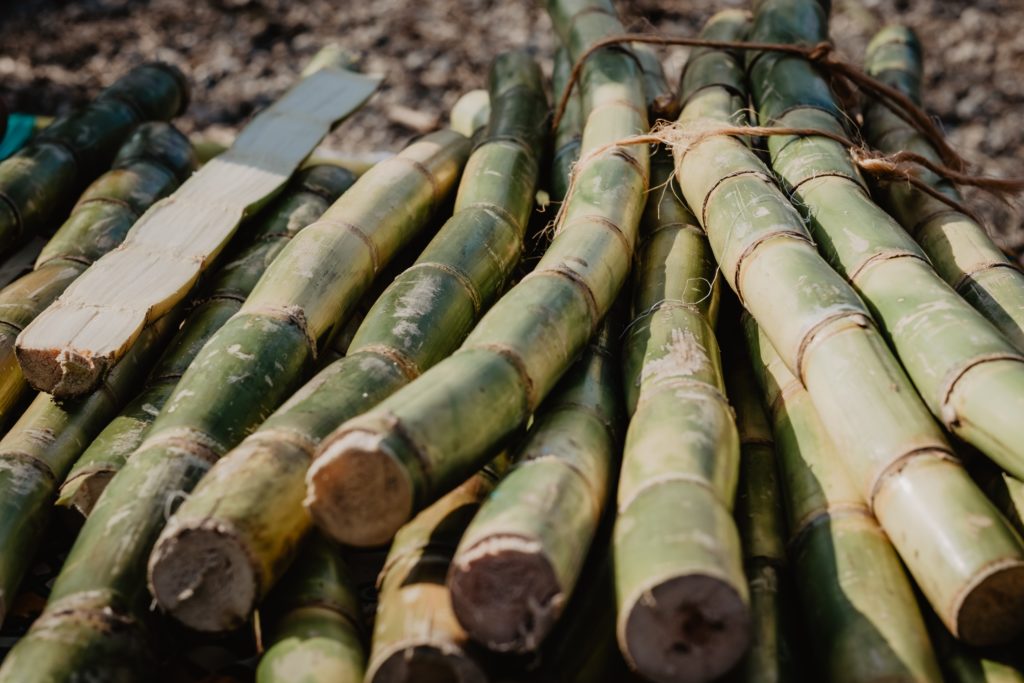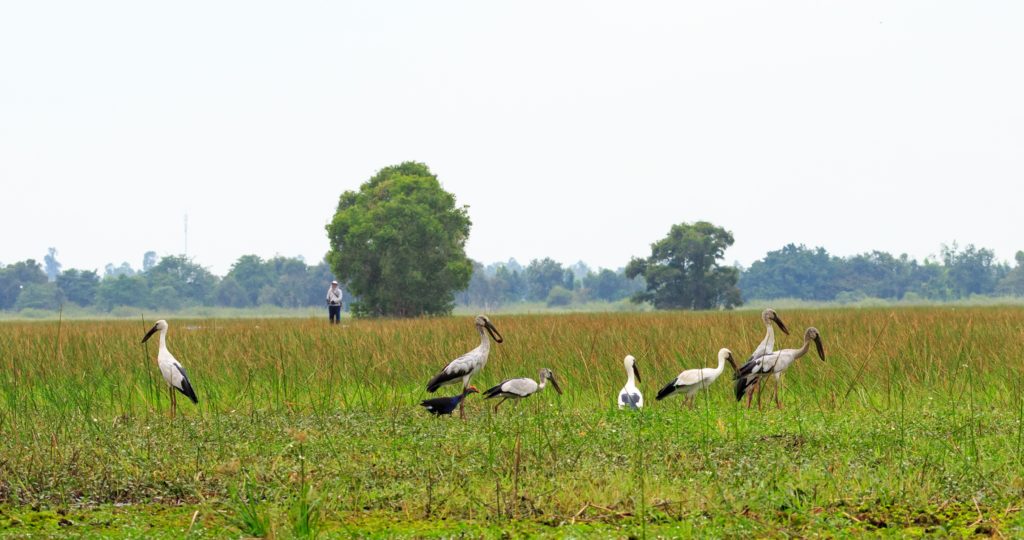
Extensive floods in Central Vietnam in 2020 sadly resulted in the loss of hundreds of lives. A project funded through the Aus4Innovation program will see digital technologies used to improve search and rescue operations and training to help respond to natural disasters.
Aus4Innovation is bringing Australian research teams and their Vietnamese counterparts together. They are combining forces to implement digitally transformative projects that bring lasting social, economic and environmental impacts in Vietnam.
Four new projects, delivered as part of the Aus4Innovation program’s Innovation Partnership Grants, will be implemented over the next 12 months.
The Aus4Innovation program is a collaboration between our researchers, Australia’s Department of Foreign Affairs and Trade, and Vietnam’s Ministry of Science and Technology.
Innovation Partnership Grants aim to address emerging challenges and opportunities in Vietnam’s innovation ecosystem and strengthen Vietnam-Australia partnerships.
Smart Eye drone tech has sugar industry productivity in its sights
Researchers from the University of Wollongong (UOW) are leading a project to improve the competitiveness of the Vietnamese sugar industry. The success of this project would help to support the livelihood of tens of thousands of Vietnamese cane farmers.
The Smart Eye solution is an Artificial Intelligence (AI) system that incorporates drone technology and artificial intelligence of things (AIOT). Smart Eye will allow project partner Lam Son Sugarcane Joint Stock Company and local farmers in Thanh Hoa province to monitor the nutrition levels and disease infestation of sugarcane fields. This information will allow growers to make decisions that will improve their productivity and reduce production costs.
Researchers from UOW will partner with the Hanoi University of Science and Technology (HUST) and Hong Duc University (HDU) to trial the Smart Eye solution. Aus4Innovation project teams will also work closely with industry partner VIGREEN, a Vietnamese technology company on this Aus4Innovation-funded project.
The engagement of the Agriculture Department of Thanh Hoa will ensure the project delivers tangible benefits to local farmers. While also improving the competitiveness of sugar production in the region.

Researchers from the University of Wollongong are leading a project that hopes to improve the competitiveness of the Vietnamese sugar industry. The project will support the livelihoods of tens of thousands of Vietnamese cane farmers.
Australian bushfire response tech to bolster Vietnamese search and rescue operations
Vietnam presents a unique geographical challenge in relation to natural disasters. It has a coastline stretching almost 3500 kilometres and complex topography. The World Health Organization lists the country as one of the most disaster-prone countries in the world. The country regularly faces many kinds of natural disasters including typhoons, floods, storms, drought, and landslides.
Technology limitations and a lack of advanced facilities and proper training can cause delays in search and rescue (SAR) operations. These delays can cost lives.
The University of Sydney (UTS) will lead a project that aims to enhance search and rescue operations in Vietnam. The project will use the latest digital transformation technologies, including aerial vehicles (UAVs), AI and remote sensing technology. This real-time remote sensing and aerial surveillance technology is tried and tested. The technology was developed by UTS and deployed in Australia for post-bushfire management and assessment in 2019/20.
The Aus4Innovation-funded project will also transfer and apply training solutions to provide Vietnam’s search and rescue workers with access to live, virtual and constructive simulation. Tailored to local conditions, the solutions will allow for simulated exercises across a range of scenarios.
UTS will collaborate with partners at Le Quy Don Technical University, Ho Chi Minh University of Technology and the Office of National Committee for Search and Rescue of Vietnam to deliver this project.
Augmented reality to improve healthcare access in remote areas of Vietnam
Most of Vietnam’s population live in rural and remote areas. But most medical specialists and inpatient medical facilities are centrally located in urban areas. Healthcare staff in rural and remote areas often have difficulty accessing real-time assistance and training provided by centrally located specialists.
This leads to a reduction in the effectiveness of health care services. And it generates additional costs for rural and remote residents to travel to central hospitals for treatment.

Most of Vietnam’s population live in rural and remote areas. A project delivered by University of Tasmania and Bach Mai Hospital seeks to improve their access to effective health care services.
A partnership project between the University of Tasmania (UTAS) and Bach Mai Hospital will employ emerging augmented reality (AR) technologies to improve the effectiveness of the remote situational tele-mentorship. The Aus4Innovation-funded project will connect central experts and less-experienced remote healthcare staff in Vietnam to help manage urgent and complex cases.
The Augmented Reality Remote Assistance initiative was developed by The Centre for Rural Health and the Human Interface Technology Laboratory at UTAS.
The successful transfer of the technology has the potential to enhance digital health. With outcomes ultimately helping to improve efficiency, responsiveness, and productivity across hospitals in remote and disadvantaged areas in Vietnam.
AI-powered dashboard to help preserve remnant wetland ecosystem
The Tram Chim National Park, located in the south of Vietnam, is a seasonal wetland. Shallow water covers the park for up to half the year, providing habitat for more than 230 bird and 130 fish species. The park is a Ramsar site and has significant biodiversity and tourism value.

An AI-powered dashboard will support improved decision making at Tram Chim National Park. It’s an important Ramsar site and home to several rare bird species like the sarus crane.
However, current environmental management and research at Tram Chim is hampered by insufficient and irregular survey data. This is due to the lack of access to remote sites and frequent flooding.
This project brings together a host of leading experts. From AI to machine learning (ML), Internet of Things (IoT), environmental engineering and conservation biology. Together they will work to transform the environmental management of Tram Chim. The project will be led by researchers from the University of Wollongong and Ho Chi Minh City University of Technology. Microsoft will join the team as a key collaborator.
The project will utilise a range of IoT devices like drones, cameras and sensors. The technology will help conduct regular surveys of large areas in Tram Chim and provide a dashboard for rangers, governance officers and researchers. This information will to support their decision making and adaptive management of water levels, wildlife and weed control. The digital dashboard will also demonstrate how management interventions impact the health of the ecosystem.
This is the third round of Innovation Partnership Grants. They are focused on developing partnerships between organisations in Australia and Vietnam. And are tackling Vietnam’s social, environmental and economic challenges. A previous round of the program Aus4Innovation program invested in research to improve flood monitoring, agricultural productivity and impacts, and aquaculture.


12th September 2021 at 11:16 am
Fabulous initiatives for a country seeking assistance and fully capable of developing its expertise now!